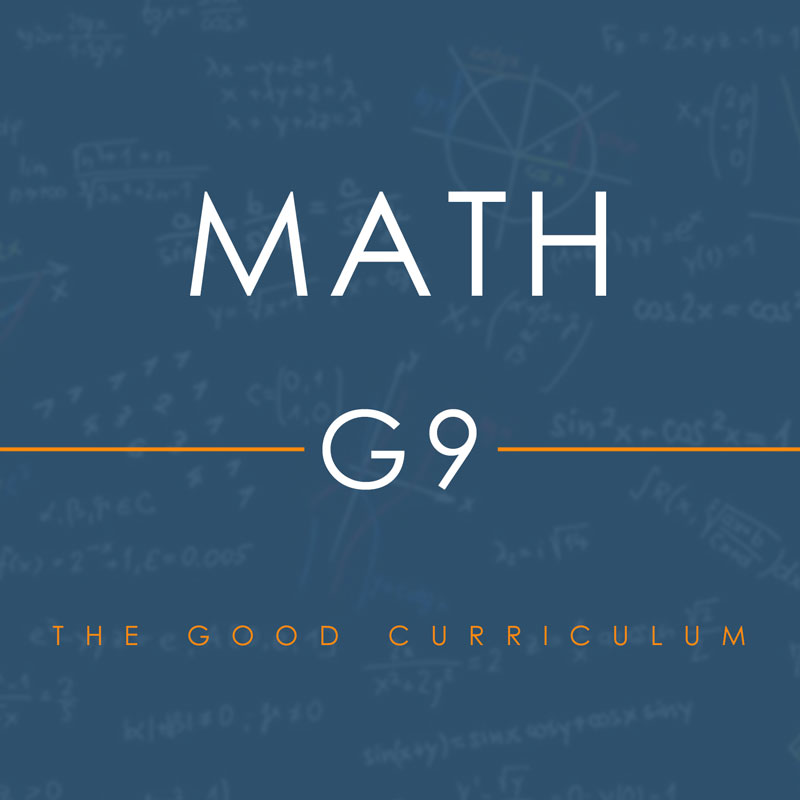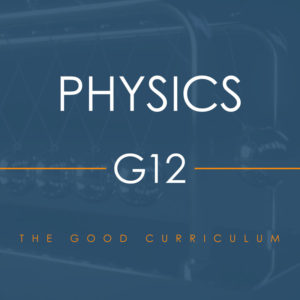Description
Who am I?
My parents homeschooled me from the very beginning, starting in the early 1980s. There were not too many families homeschooling in the early 1980s. I attended a private high school. I took Advanced Placement exams in Calculus, Physics, English Composition, and English Literature, and received credit for my first year of college. I attended Covenant College in Lookout Mountain, Georgia, and received my bachelor’s degree in philosophy. I spent the last semester of college studying abroad at Oxford University. I received my master’s and Ph.D. degrees in optical sciences from the College of Optical Sciences at the University of Arizona for research performed in the area of semiconductor cavity quantum electrodynamics. I am now an engineer on the Advanced Concepts Team of the R&D division of a photovoltaics manufacturer in Albuquerque, New Mexico. I am married and have three young boys.
Grade 9: Math
Grade 9 math is a second-year algebra course which provides students with the necessary mathematical skills to succeed in college mathematics. In 9th grade, your student will master college-level algebra including functions; complex numbers; matrices and determinants; systems of equations and inequalities; polynomial, rational, exponential and logarithmic functions; conic sections; sequences and series; and counting and probability. Realistic problems provide your child with proficiency in applying algebraic concepts. Grade 9 mathematics assumes that the student has successfully passed Algebra I course and is proficient with solving algebraic equations, graphing in the coordinate plane, linear equations, solving systems of equations with two variables, factoring and solving quadratic equations, the quadratic formula, radicals, powers and exponents, and simple algebraic fractions. Students who have not taken the equivalent of an Algebra I course should take the 8th-grade mathematics course, which covers Algebra I. If this is the case for your student, you don’t have to worry that the student will be behind in high school mathematics. I didn’t take Algebra I until 9th grade and I still took an AP Calculus course. Note that this course will not cover trigonometry. Trigonometry will be covered in the 10th-grade mathematics course, which will cover geometry and trigonometry.
To succeed in mathematics at the college level, it is necessary to be able to use concepts you have learned to solve different kinds of problems, even if you haven’t seen an example problem exactly like the problem you need to solve. But it means that simply learning a list of procedures to apply to specific kinds of problems will not be a successful strategy. In order to achieve a deeper level of understanding of the underlying concepts, I recommend two specific study techniques that you should use in addition to the daily video lessons and the daily problem sets:
Study Notebook: I want you to get a study notebook specifically for your mathematics classes, and you will need to make a written entry in it for every class that presents new material. For each new concept of skill that you learn, I want to write a short, clear explanation in your own words in your study notebook. You can solve one or two examples in your study notebook. But it is not a notebook for solving the problem sets. It is a clear explanation, in your own words, of each of the topics that we cover in this course. At first, you may find this difficult and it may take quite a bit of time. But after a few weeks, you will have had enough practice that you can make the entries in your study notebook in 15 minutes or less. Consider having a separate page for each entry. Then at a later time, you can rearrange or organize your study notebook as you add more material. I think once you get used to the study notebook you will want to keep it and continue using it through the rest of your mathematics studies.
Explaining to a Friend: In addition to the study notebook, for each topic that we study, I want you to explain the concept or how to solve a problem out loud to a friend. Most likely you will explain it to an imaginary friend, but it could be a parent or another friend. The important thing is for you to hear yourself explaining the concepts out loud. If you don’t really understand the topic well, you will know right away when you hear yourself trying to explain it.
These two techniques, the Study Notebook and Explaining to a Friend, will help you develop a much deeper understanding of the math that we study than if you just watch the videos and do the problem sets. I expect that you will need to set aside about one hour per day for study, in addition to your time watching the videos. But there are no shortcuts to mastering mathematics. If you are diligent in using these techniques, in addition to watching the videos carefully and solving all of the problem sets, you will be well equipped to succeed in high school math and beyond.
For this class, you will need a graphing calculator which you will continue to use in many advanced mathematics classes such as precalculus and calculus. Any good graphing calculator (HP, TI, Casio) will be adequate for this course, but the calculator I will be using for explanations is the TI-84 Plus:





Reviews
There are no reviews yet.